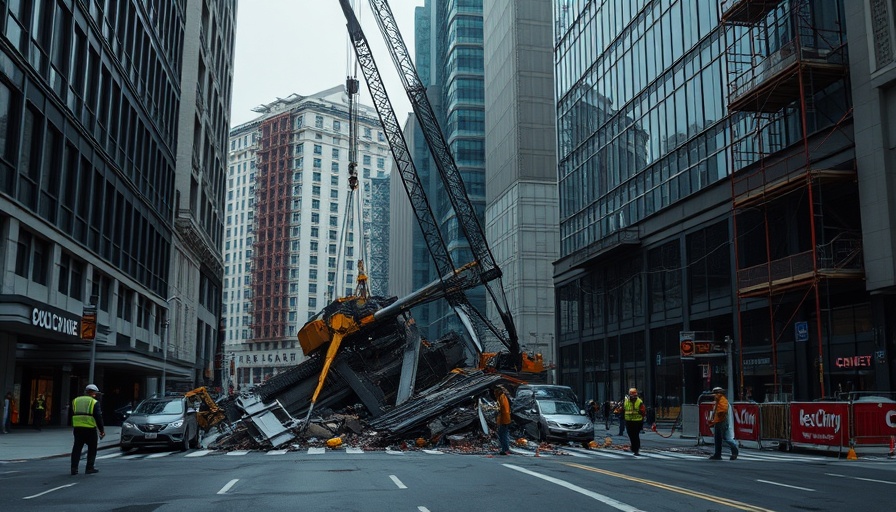
The Crane Collapse: A Close Call in Hell's Kitchen
On April 4, a dramatic incident unfolded in Hell's Kitchen when a spider crane collapsed through scaffolding at W. 38th St. and Ninth Ave. Thankfully, there were no injuries reported, according to the FDNY. The collapse occurred just a day after the Department of Buildings (DOB) had lifted a partial stop-work order on the construction site, raising troubling questions about safety practices in urban construction.
Understanding the Safety Protocols and Oversight
The initial stop-work order, imposed due to concerns about crane operations without proper permits, was lifted on April 3, highlighting a significant gap in safety enforcement. The DOB had cited issues with hoisting operations at the site, which came to light following this unfortunate event. Clearly, the reapplication of a stop-work order after the crash underscores ongoing concerns regarding construction site regulations.
Local Community Reactions to the Incident
Witnesses described scenes of chaos as fire trucks surrounded the site, diverting traffic for over an hour. Bystanders expressed relief that, despite the significant damage to the scaffolding, no one was harmed. Community members gathered in shock, realizing how close this incident came to potential tragedy, fueling discussions about the importance of robust safety measures in construction.
What This Means for Construction Practices in New York
The incident raises alarms about construction practices not only in New York City but also in urban areas where construction is rampant. As cranes become an integral part of city skylines, the question of regulatory oversight becomes critical. Moving forward, businesses involved in construction must not only comply with regulations but actively report concerns regarding unsafe practices.
Actions and Regulations Needed for Improvement
As the DOB continues its investigation, the focus must shift towards implementing stricter regulations and fostering a culture of safety. It's essential for construction companies to take proactive measures, ensuring that equipment is safe for operation. The recent collapse ignites a discussion that should lead to more rigorous checks and an emphasis on accountability among contractors.
The Hell's Kitchen crane incident serves as a stark reminder of the risks present in urban construction and underscores the need for enhanced safety protocols. For professionals involved in construction management, legal advisory, or safety regulation, acknowledging and rectifying these risks will become increasingly crucial in safeguarding lives and property.
 Add Row
Add Row  Add Element
Add Element 



Write A Comment